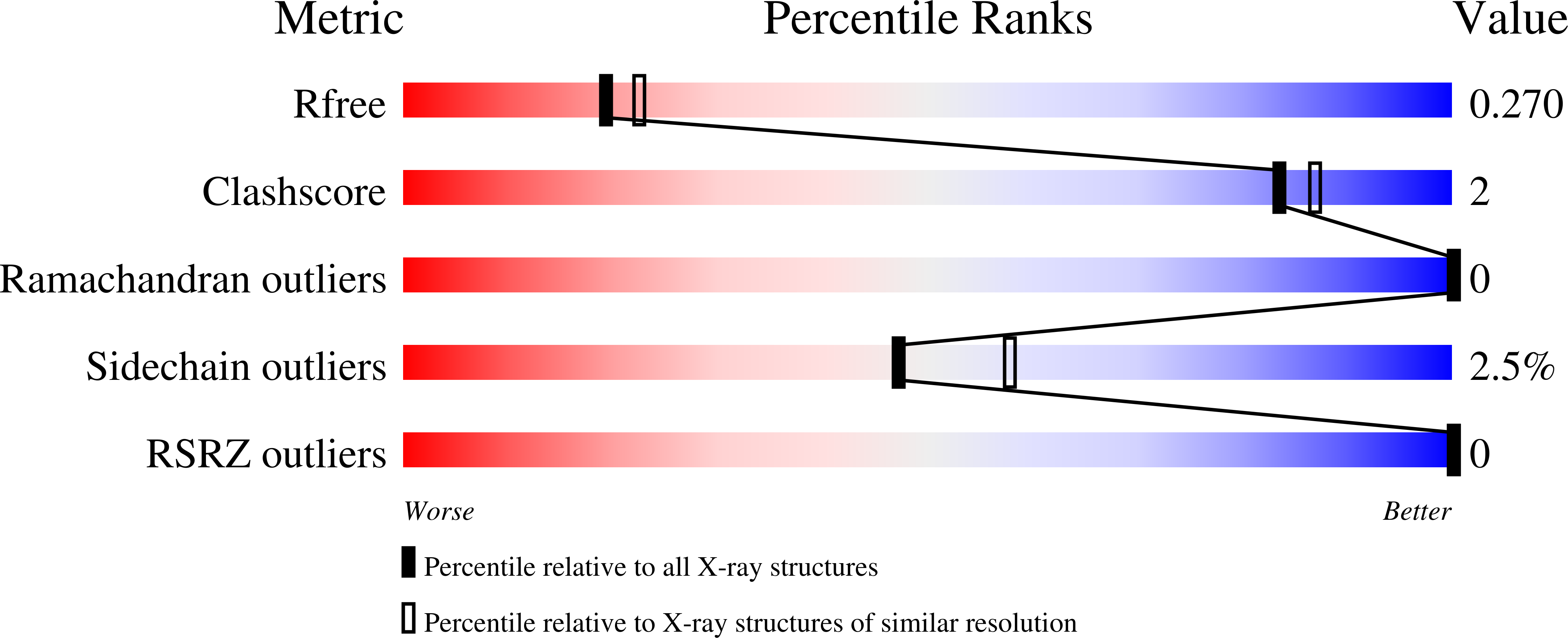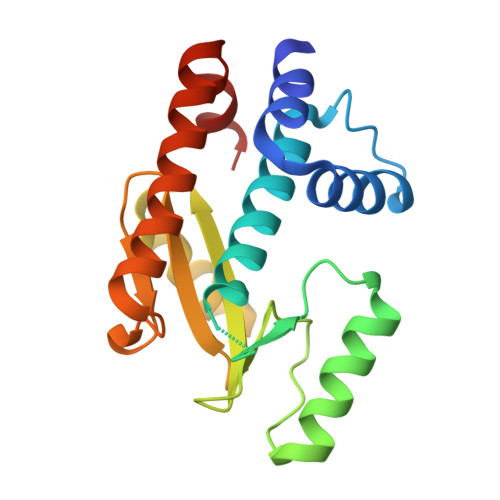SAR Exploration of Tight-Binding Inhibitors of Influenza Virus PA Endonuclease.
Credille, C.V., Morrison, C.N., Stokes, R.W., Dick, B.L., Feng, Y., Sun, J., Chen, Y., Cohen, S.M.(2019) J Med Chem 62: 9438-9449
- PubMed: 31536340
- DOI: https://doi.org/10.1021/acs.jmedchem.9b00747
- Primary Citation of Related Structures:
6E3M, 6E3N, 6E3O, 6E3P, 6E4C, 6E6V, 6E6W, 6E6X - PubMed Abstract:
Significant efforts have been reported on the development of influenza antivirals including inhibitors of the RNA-dependent RNA polymerase PA N-terminal (PA N ) endonuclease. Based on recently identified, highly active metal-binding pharmacophores (MBPs) for PA N endonuclease inhibition, a fragment-based drug development campaign was pursued. Guided by coordination chemistry and structure-based drug design, MBP scaffolds were elaborated to improve activity and selectivity. Structure-activity relationships were established and used to generate inhibitors of influenza endonuclease with tight-binding affinities. The activity of these inhibitors was analyzed using a fluorescence-quenching-based nuclease activity assay, and binding was validated using differential scanning fluorometry. Lead compounds were found to be highly selective for PA N endonuclease against several related dinuclear and mononuclear metalloenzymes. Combining principles of bioinorganic and medicinal chemistry in this study has resulted in some of the most active in vitro influenza PA N endonuclease inhibitors with high ligand efficiencies.
Organizational Affiliation:
Department of Chemistry and Biochemistry , University of California, San Diego , La Jolla , California 92093 , United States.
















